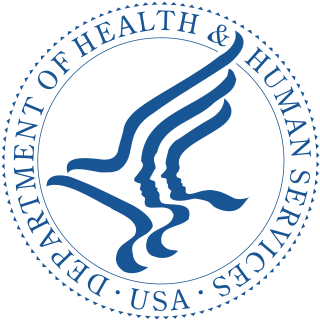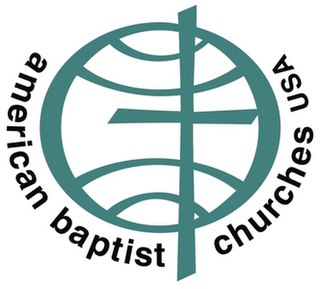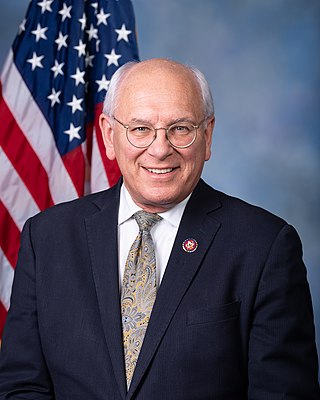
The United Nations Foundation is a charitable organization headquartered in Washington, DC, that supports the United Nations and its activities. It was established in 1998 with a $1 billion gift to the United Nations by philanthropist Ted Turner, who believed the UN was crucial for addressing the world's problems. Originally primarily a grantmaker, the UN Foundation has evolved into a strategic partner to the UN, mobilizing support to advance the Sustainable Development Goals (SDGs), and help the UN address issues such as climate change, global health, gender equality, human rights, data and technology, peace, and humanitarian responses. The UN Foundation's main work occurs through building public-private partnerships, communities, initiatives, campaigns, and alliances to broaden support for the UN and solve global problems. The UN Foundation has helped build awareness and advocate for action on, among others, antimicrobial resistance, regional action on climate change, local implementation of the SDGs, as well as global campaigns such as Nothing But Nets against malaria, the Measles & Rubella Initiative, the Clean Cooking Alliance, Girl Up, Shot@Life, and the Digital Impact Alliance, among others. In March 2020, the UN Foundation was also a key founder of the COVID-19 Solidarity Response Fund on behalf of the World Health Organization (WHO), helping to raise over $200 million USD within the first six weeks to support the global response to the COVID-19 pandemic.

The United States Department of Health and Human Services (HHS) is a cabinet-level executive branch department of the U.S. federal government created to protect the health of the U.S. people and providing essential human services. Its motto is "Improving the health, safety, and well-being of America". Before the separate federal Department of Education was created in 1979, it was called the Department of Health, Education, and Welfare (HEW).

The American Baptist Churches USA (ABCUSA) is a Baptist Christian denomination established in 1907 originally as the Northern Baptist Convention, and from 1950 to 1972 as the American Baptist Convention. It traces its history to the First Baptist Church in America (1638) and the Baptist congregational associations which organized the Triennial Convention in 1814.

Mental health encompasses emotional, psychological, and social well-being, influencing cognition, perception, and behavior. According to World Health Organization (WHO), it is a "state of well-being in which the individual realizes his or her abilities, can cope with the normal stresses of life, can work productively and fruitfully, and can contribute to his or her community". It likewise determines how an individual handles stress, interpersonal relationships, and decision-making. Mental health includes subjective well-being, perceived self-efficacy, autonomy, competence, intergenerational dependence, and self-actualization of one's intellectual and emotional potential, among others. From the perspectives of positive psychology or holism, mental health may include an individual's ability to enjoy life and to create a balance between life activities and efforts to achieve psychological resilience. Cultural differences, personal philosophy, subjective assessments, and competing professional theories all affect how one defines "mental health". Some early signs related to mental health difficulties are sleep irritation, lack of energy, lack of appetite, thinking of harming oneself or others, self-isolating, and frequently zoning out.
Lutheran World Relief (LWR) is an international non-governmental organization that focuses on sustainable development projects and disaster relief and recovery. The organization was founded in 1945 to collect and send aid to people living in post-World War II Europe. Today, LWR helps communities living in extreme poverty adapt to the challenges that threaten their livelihoods and well-being, and responds to emergencies with a long-term view. It is a member of the Corus International family of faith-based international development organizations, which include IMA World Health, CGA Technologies, Ground Up Investing, and LWR Farmers Market Coffee.
The Administration for Children and Families (ACF) is a division of the United States Department of Health and Human Services (HHS). It is headed by the Assistant Secretary of Health and Human Services for Children and Families. It has a $49 billion budget for 60 programs that target children, youth and families. These programs include assistance with welfare, child support enforcement, adoption assistance, foster care, child care, and child abuse. The agency employs approximately 1,700 staff, including 1,200 federal employees and 500 contractors, where 60% are based in Washington, DC, with the remaining in regional offices located in Boston, New York City, Philadelphia, Atlanta, Chicago, Dallas, Kansas City, Denver, San Francisco, Missouri and Seattle.
The Center for Climate and Energy Solutions (C2ES) is an environmental nonprofit organization based in Arlington, Virginia. Launched in 2011, C2ES is the successor to the Pew Center on Global Climate Change. C2ES works closely with policymakers and stakeholders to promote pragmatic, effective policies at the state, national, and international levels.

The Urban Land Institute, or ULI, is a global nonprofit research and education organization with regional offices in Washington, D.C., Hong Kong, and London. ULI aims to help its members and their partners build more equitable, sustainable, healthy and resilient communities.
Lise Van Susteren is an American psychiatrist, commentator, author and environmental activist. She is a general and forensic psychiatrist in Washington, D.C., and an expert on the physical and psychological impacts of climate change.

Paul David Tonko is an American politician serving as the U.S. representative for New York's 20th congressional district since 2013. He represented the 21st congressional district from 2009 to 2013. A member of the Democratic Party, Tonko has been called a staunch progressive. After the 2020 redistricting cycle and effective for the 118th Congress, the 20th district will include all of Albany County, Saratoga County and Schenectady County, as well as part of Rensselaer County.
The effects of climate change in Florida are attributable to man-made increases in atmospheric carbon dioxide. Floridians are experiencing increased flooding due to sea level rise, and are concerned about the possibility of more frequent or more intense hurricanes.
The National Action Alliance for Suicide Prevention is an American suicide prevention organization coordinating national efforts to advance the National Strategy for Suicide Prevention (NSSP). It is a public/private partnership that, according to them, "catalyzes planning, implementation, and accountability for updating and advancing the NSSP. The Action Alliance works on the 2001 National Strategy for Suicide Prevention and is an outgrowth of the Suicide Prevention Resource Center. The Action Alliance initially focused on three high-risk populations: LGBT youth, American Indians/Alaska Natives, and military/veterans. Part of the group's campaign will be to educate on the warning signs of suicide, promoting the National Suicide Prevention Lifeline, as well as community crisis clinics across the U.S.

The Interfaith Center for Sustainable Development (ICSD), is a nonprofit organization, founded and directed by Rabbi Yonatan Neril in 2010. Based in Jerusalem, ICSD connects religion and ecology and mobilizes faith communities to act. ICSD's director has spoken at the World Economic Forum in Davos, multiple UN climate conferences, and the Parliament of World Religions.
The Office of the Assistant Secretary for Planning and Evaluation (ASPE) is the principal advisory group to the United States Secretary of the Department of Health and Human Services (HHS) on policy development and provides coordination and support for HHS's strategic and policy planning, planning and development of legislation, program evaluation, data gathering, policy-related research, and regulatory program.

The effects of climate change on mental health and wellbeing are documented. This is especially the case for vulnerable populations and those with pre-existing serious mental illness. There are three broad pathways by which these effects can take place: directly, indirectly or via awareness. The direct pathway includes stress-related conditions caused by exposure to extreme weather events. These include post-traumatic stress disorder (PTSD). Scientific studies have linked mental health to several climate-related exposures. These include heat, humidity, rainfall, drought, wildfires and floods. The indirect pathway can be disruption to economic and social activities. An example is when an area of farmland is less able to produce food. The third pathway can be of mere awareness of the climate change threat, even by individuals who are not otherwise affected by it.
Eco-anxiety is a challenging emotional response to climate change and other environmental issues. Extensive studies have been done on ecological anxiety since 2007, and various definitions remain in use. The condition is not a medical diagnosis and is regarded as a rational response to the reality of climate change; however, severe instances can have a mental health impact if left without alleviation. There is also evidence that eco-anxiety is caused by the way researchers frame their research and their narratives of the evidence about climate change: if they do not consider the possibility of finding any solution to overcome climate change and for individuals to make a difference, they contribute to this feeling of powerlessness.
Ecological grief, or in particular climate grief, refers to the sense of loss that arises from experiencing or learning about environmental destruction or climate change. Environmental grief can be defined as "the grief reaction stemming from the environmental loss of ecosystems by natural and man-made events." Another definition is "the grief felt in relation to experienced or anticipated ecological losses, including the loss of species, ecosystems, and meaningful landscapes due to acute or chronic environmental change." For example, scientists witnessing the decline of Australia's Great Barrier Reef report experiences of anxiety, hopelessness, and despair. Groups impacted heavily also include young people feeling betrayal from lack of environmental action by governments and indigenous communities losing their livelihoods.

The psychological impacts of climate change concerns effects climate change can have on individuals' mental and emotional well-being. They may also relate to more generalised effects on groups and their behaviours, such as the urge to migrate from affected areas of the globe to areas perceived as less affected. These impacts can manifest in various ways and affect people of all ages and backgrounds. Some of the key psychological impacts of climate change include: emotional states such as eco-anxiety, ecological grief, eco-anger or solastalgia. While troublesome, such emotions may not appear immediately harmful and can lead to a rational response to the degradation of the natural world motivating adaptive action. However, there can be other effects on health, such as post-traumatic stress disorder (PTSD), for instance, as a result of witnessing or seeing reports of massive wildfires, which may be more dangerous.

Climate change and cities are deeply connected. Cities are one of the greatest contributors and likely best opportunities for addressing climate change. Cities are also one of the most vulnerable parts of the human society to the effects of climate change, and likely one of the most important solutions for reducing the environmental impact of humans. The UN projects that 68% of the world population will live in urban areas by 2050. Cities have a significant influence on construction and transportation—two of the key contributors to global warming emissions. Moreover, because of processes that create climate conflict and climate refugees, city areas are expected to grow during the next several decades, stressing infrastructure and concentrating more impoverished peoples in cities.

Joshua Amponsem is a Ghanaian climate advocate and a co-founder of Green Africa Youth Organization (GAYO). He is the climate specialist at the Office of the UN Secretary General's Envoy on Youth. He is the Lead Author of Adapt for Our Future, the first-ever research paper on the role of youth in advancing climate adaptation. His career has been more focused on grassroots climate and waste management solutions while advancing youth engagement in resilience building, disaster risk reduction, and climate change adaptation at the international level.










